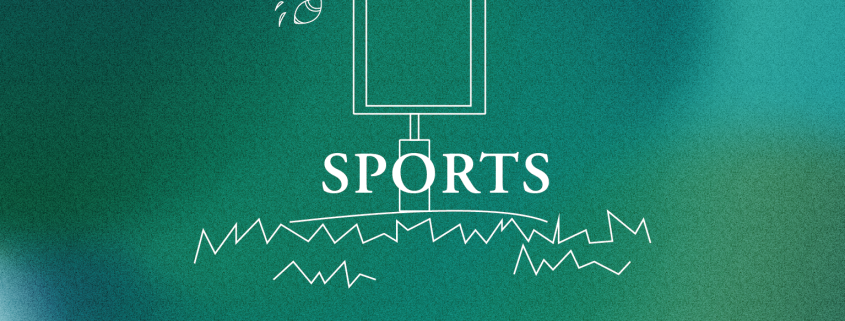Heart to Heart: Black line therapy is a swimmer’s unconventional remedy
Well, we’ve made it. Almost. One more semester checked off of the endless list of things we hope to accomplish in our young lives.
At the end of every semester, or the end of anything, I become intensely nostalgic. Maybe it’s because I’ve always loved full-circle moments, or maybe it’s because not having my Google Calendar look like a box of Froot Loops scares me half to death, but this particular form of nostalgia only has one cure: black line therapy.
If you’ve swam competitively at any point in your life, you know what black line therapy is, even if the official term is new. I say official for no real reason; a friend introduced the expression earlier this semester before club water polo practice. We were burnt out. Exhausted. Mentally drained. We needed silence, but not the kind you get in Leavey Library at three in the morning.
We needed to swim.
When you get into this zone, it’s meditative. The surface-level thoughts about your day’s to-do list or the weird comment a guy made in class that morning evolve into thoughts of your dreams, goals, how fast time has been going by these days. You get into a zone, and when you find this pattern, you also find that you aren’t alone inside that chlorinated reservoir.
Your friend, the black line, is right there with you.
The black line, for not having a name, a speaking voice, or free will of any kind, is a great therapist when you need it most. All superficial worries that cloud your brain throughout the day are cleared, and, this time, not with a two-hour TikTok binge. You start thinking more deeply the longer you swim, and the longer you stare at those dark-colored tiles that run down each lane of the pool, the more that line becomes your lifeline.
In high school, I didn’t swim enough. Instead, I’d medicate my heavy bouts of nostalgia with words. I wrote almost every single day, page after page after page, to the point where I’d retreat to my room and turn off the light at a reasonable hour, but not be able to close my eyes unless I’d cranked out a few hundred words and felt unhealthily existential.
The blue light of my computer screen was hidden under covers until I knew I was the only one awake. The coronavirus pandemic only exacerbated my use of writing as therapy. I didn’t have school to go to or friends to hang out with or family to visit, but what I did have was a pen, a hefty sprinkle of anxiety and way too much time on my hands.
I’ll always love writing, but it’s not always the most effective form of therapy for the sole reason that it’s not isolated. You can write any time, any place, and stay connected to these intense emotions no matter where you are. You can log back into your Google Drive, Notes app or five-year-old journal and read all those entries whenever you want a quick hit of feelings.
Looking for a good cry? Read any entry from senior year of high school. Looking for a laugh? Read that one about that guy from a few months back. Looking for advice? Pull out a pen and flip to a fresh page. You dive into the pages; you feel every emotion all over again, bringing back moments you cherish with pride or ones you wished you could leave in the past.
That’s why I prefer the pool.
You jump in, and you’re immediately welcomed back to the waiting room of the black line therapist. It takes a couple hundred yards until your name is called, and you finally enter the familiar state of meditation that is black line therapy. One stroke, two strokes, three strokes, breathe, stop talking to that frat boy who tells you you’re pretty when he’s drunk. One stroke, two strokes, three strokes, breathe, don’t freak out about that assignment, it’s not the end of the world. One stroke, two strokes, three strokes, breathe, text that girl in your class to get a coffee next week.
This week, we’ve all got a lot to think about. You might be graduating in a matter of days. You might be wrapping up the first year of pure freedom you’ve ever experienced. You might be packing bags back to a hometown that’s too small for the dreams you’ve found in this big city.
Wherever you’ll be when the second week of May comes around, and however that will feel, find your own black line therapist. They always say the first appointment is the hardest, so don’t get discouraged when the answers you seek are just a little bit deeper. The journey down the pool is grueling, whether you swim 500 yards or 4,000, but once you hop out onto the deck, the world looks just a little clearer.
Dana Hammerstrom is a sophomore writing about the mental health of collegiate athletes, as well as the emotional pressures they face, in her column, “Heart to Heart.”

